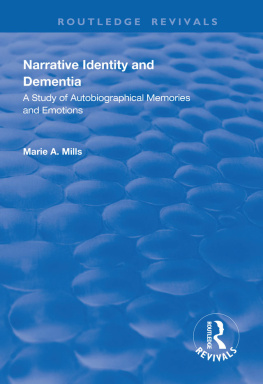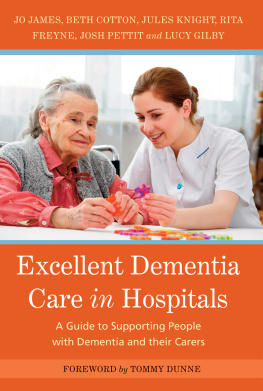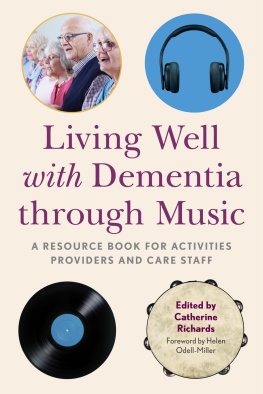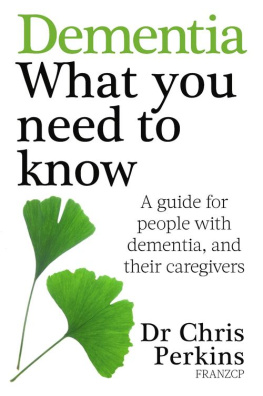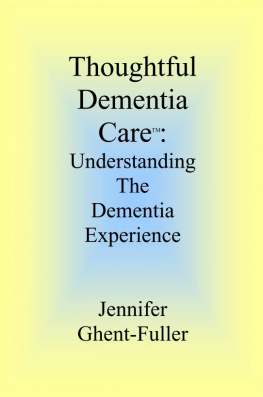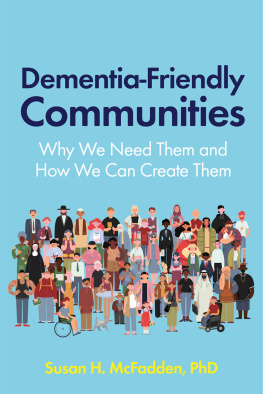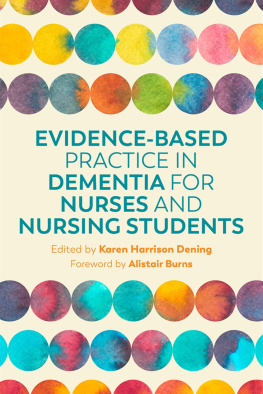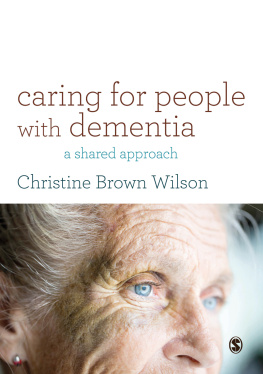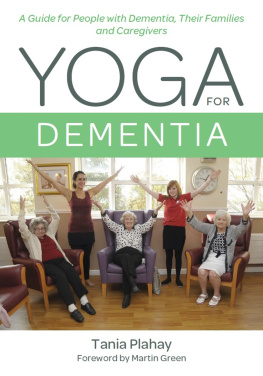Other titles in this series, published in association with CEDR
(Series Editor: Robin Lovelock )
CHANGING PATTERNS OF MENTAL HEALTH CARE
A case study in the development of local services
Jackie Powell and Robin Lovelock
PARTNERSHIP IN PRACTICE The Children Act 1989
Edited by Ann Buchanan
DISABILITY: BRITAIN IN EUROPE An evaluation of UK participation in the HELIOS programme (1988-1991)
Robin Lovelock and Jackie Powell
THE PROBATION SERVICE AND INFORMATION TECHNOLOGY
David Colombi
VISUAL IMPAIRMENT; SOCIAL SUPPORT
Recent research in context
Robin Lovelock
WORKLOADS: MEASUREMENT AND MANAGEMENT
Joan Orme
LIVING WITH DISFIGUREMENT Psychosocial implications of being born with a cleft lip and palate
Poppy Nash
EDUCATING FOR SOCIAL WORK: ARGUMENTS FOR OPTIMISM
Edited by Peter Ford and Patrick Hayes
DEMENTIA CARE: KEEPING INTACT AND IN TOUCH
A search for occupational therapy interventions
M. Catherine Conroy
SUICIDAL BEHAVIOUR IN ADOLESCENTS AND ADULTS
Research, taxonomy and prevention
Christopher Bagley and Richard Ramsay
Narrative Identity and Dementia
A study of autobiographical memories and emotions
Marie A. Mills
First published 1998 by Ashgate Publishing
Reissued 2018 by Routledge
2 Park Square, Milton Park, Abingdon, Oxon, OX14 4RN
711 Third Avenue, New York, NY 10017, USA
Routledge is an imprint of the Taylor & Francis Group, an informa business
Copyright Marie A. Mills 1998
All rights reserved. No part of this book may be reprinted or reproduced or utilised in any form or by any electronic, mechanical, or other means, now known or hereafter invented, including photocopying and recording, or in any information storage or retrieval system, without permission in writing from the publishers.
Notice:
Product or corporate names may be trademarks or registered trademarks, and are used only for identification and explanation without intent to infringe.
Publisher's Note
The publisher has gone to great lengths to ensure the quality of this reprint but points out that some imperfections in the original copies may be apparent.
Disclaimer
The publisher has made every effort to trace copyright holders and welcomes correspondence from those they have been unable to contact.
A Library of Congress record exists under LC control number: 98070989
ISBN 13: 978-1-138-32785-6 (hbk)
ISBN 13: 978-0-429-44902-4 (ebk)
To my husband Ces Mills for making all things possible.
To Ed Conroy, who organised and prepared this entire text for publication - 'a friend indeed'.
To Peter Coleman, the most encouraging and generous of mentors.
To my children Jem, Jon and Anne-Marie for their contributions and belief.
- AD Alzheimer's Disease
- BSE Bovine Spongiform Encephalopathy
- CAMDEX Cambridge Mental Disorders of the Elderly Examination
- CRBRS Crighton Royal Behavioural Rating Scale
- CT Computer-assisted Tomography
- CVA Cerebral Vascular Accident
- DAT Dementia of the Alzheimer's Type
- DIY Do It Yourself
- GP General Practitioner
- ICS Interacting Cognitive Subsystems
- JCD Jacob-Creutzfeldt Disease
- LBD Lewy Body Disease
- LTM Long Term Memory
- MEM Multiple Entry Memory
- MID Multi-Infarct Dementia
- MMSE Mini-Mental State Examination
- MSP Malignant Social Psychology
- MSQ Mental Status Questionnaire
- MTS Mental Test Score
- NATO North Atlantic Treaty Organisation
- NVQ National Vocational Qualification
- OPCS Office of Population and Census Surveys
- PD Parkinson's Disease
- POW Prisoner of War
- SDAT Senile Dementia of the Alzheimer's Type
- STM Short Term Memory
This is a book of many contrasts. It seeks to establish a firm theoretical base in order to sustain an argument that has frequently been anecdotal in nature. Consequently, the reader will move between the empirical world of evidence to the experiential world of the individual. It is hoped that the interplay between these two perspectives will strengthen the debate. The main discussion will focus on the characteristic features of emotional memories in a small group of older people with some form of dementia. However, the literature on the presence of emotions in dementia is relatively sparse, although several publications have appeared on the subject in recent years (Bromley, 1990; Hausman, 1992; Kitwood, 1990a; Mills and Coleman, 1994).
A small pilot study (Mills, 1991) suggested that some demented elderly people could recall past and current concerns. In this particular study, informants were seen on an individual basis over a period of three months. Counselling strategies were used during the research interviews in order to facilitate recall and disclosure. The findings implied that these informants displayed appropriate emotions associated with their memories and suggested that the relationship between memory, emotion and dementia were worthy of further exploration.
However, the questions to be asked of a future study were many. With the use of a similar approach, was it possible for older people with dementia to recall intact emotional memories associated with past and present events? Further, did these memories of a personal past contain pieces of information which formed part of their life histories or life stories? What type of emotional memories would be found amongst these older people? Would they be 'good' positive memories or might they be 'sad' and possibly negative? Finally, did the aided recall of these emotional memories, over time, allow these memories to remain, or would they gradually fade into oblivion due to the progression of the illness?
Thus, the investigation was interested in the concepts of dementia, memory and emotions, and their corresponding psychological, biological and social characteristics. It was concerned with an illness without certain aetiology or proven cure, the mysterious frameworks and processes of a mental phenomenon which is poorly understood, and the significance of the emotions for which there are over a hundred known theories.
Generated theries for this study, therefore, were cumulative in nature, but Baddeley (1992) suggests that his own preference is for breadth of application, as opposed to detailed prediction. The application of 'a broad sweep theory' has great bearing on this inquiry which investigated aspects of an illness that disrupts and destroys the lives of sufferers and their families alike. Certainly, Bond et al. (1990) argue that many new referrals for long term care are due to some type of dementing illness, an illness which Kitwood (1990a, 1993, 1997a) suggests can lead to the disintegration of personhood. Tobin (1991), too, maintains this process may cause the 'de-selfing' of the person.
I have long been interested in the preservation of 'uniqueness of being/personhood' among this client group, beginning with my involvement in the residential care of older people over many years. The last eleven years have been spent as an owner/manager of a residential home, now a specialist residential home, for twenty elderly people. My own practice suggested that the use of basic counselling skills in a discussion of their past life led to an immediate reduction in negative behaviour. Some years ago I began to notice that confused residents also enjoyed a discussion of their past lives. It tended to reduce high anxiety levels, providing it was handled with empathy and skill. It was also more effective when undertaken on an individual basis. Residents looked as if they were happy when discussing their past. They smiled and laughed during this activity. Reminiscence therapy gradually became a personal interest which widened into a desire to understand more about the process. I wondered if other older people with dementia would also enjoy this activity. Was it effective in the Home because I knew these people so well? Would it be as effective with strangers? This interest formed the basis for the pilot study.

